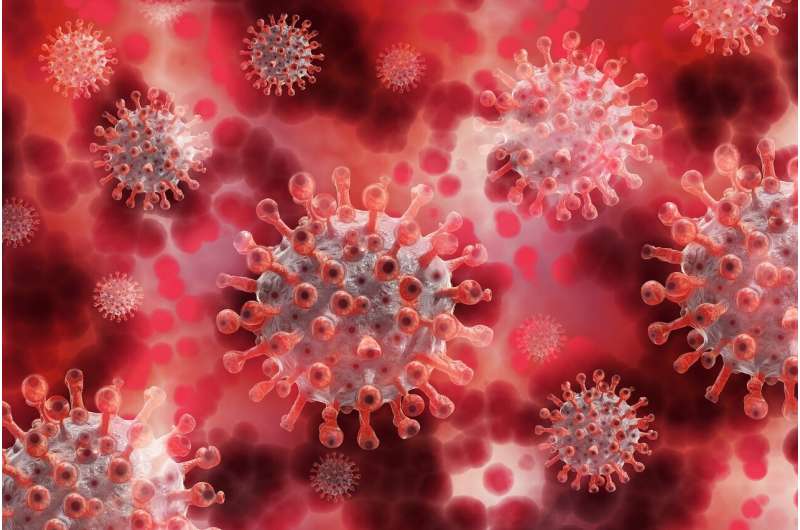
A recent Cleveland Clinic study found that patients who regularly use steroid nasal sprays are less likely to develop severe COVID-19-related disease, including a 20 to 25% lower risk of hospitalization, ICU admission and mortality. The study was published in Journal of Allergy and Clinical Immunology: In Practice.
Joe Zein, M.D, Ph.D., a pulmonologist at Cleveland Clinic and Ronald A. Strauss, M.D., an allergist-immunologist and Director of the Cleveland Allergy and Asthma Center, and colleagues at Cleveland Clinic followed 72,147 COVID-19 positive individuals, ages 18 years and older, within the Cleveland Clinic health system from April 1, 2020, to March 31, 2021. Of that cohort, 12,608 (17.5%) were hospitalized, 2,935 (4.1%) were admitted to ICU and 1,880 (2.6%) died during hospitalization. Within this group, 10,187 (14.1%) patients were receiving a steroid nasal spray—also known as intranasal corticosteroids—prior to COVID-19 infection.
Patients who used intranasal corticosteroids prior to COVID-19 illness were 22% less likely to be hospitalized, 23% less likely to be admitted to the intensive care unit, and 24% less likely to die from COVID-19 during hospitalization compared to patients not on intranasal corticosteroids.
While the findings of the study encourage patients who use intranasal corticosteroids chronically to continue to do so as needed, it does not suggest that intranasal corticosteroids should be used to treat or prevent COVID-19 in any way. The theory behind the study, which was based on reports that intranasal corticosteroid in vitro (in the laboratory) decreased the protein receptor ACE2, allowing the SARS-CoV-2 virus that causes COVID-19 to enter cells and, spread the disease.
Intranasal corticosteroids are nasal sprays in the steroid family of medicines. These medicines are sprayed or inhaled into the nose to help relieve the stuffy nose, irritation, allergies, and other nasal problems. They can be bought over the counter, or prescribed. To date, the precise role intranasal corticosteroids play in reducing the severity of COVID-19 infection has not been determined. However, based on the study’s findings and the fact that ACE2 expression is highest in the nasal mucosa, it can be hypothesized that by suppressing viral load and receptor expression in the nose, intranasal corticosteroids use can be effective against severe disease. Future studies will be needed to corroborate these findings.
“This study shows the importance of the nose in COVID-19 infection,” said Dr. Zein. “The nose, in this instance is the gateway to our bodies, allowing the virus to enter and replicate within. The use of intranasal corticosteroids may help disrupt that gateway.”
Source: Read Full Article
